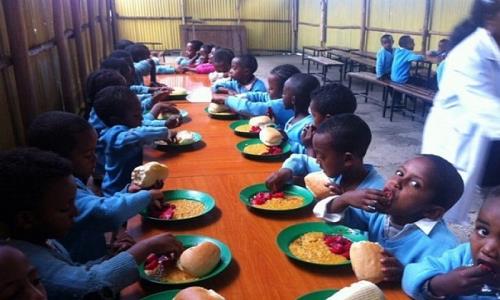By: Israel Umoh
Nigerian politicians make the mistake of thinking that money is what motivate the people. During the elections, they would ‘bribe’ the electorate by paying salaries/bonuses to public servants, gratuities/pensions to pensioners, scholarships/bursary awards to students and ‘perks’ to political hangers. Since money answers many things, they woo the electorate to do their biddings.
The problem, according to Ross Gitiri, an Economics writer is that decades of the rising living standards has done nothing to make them feel happier. Rather, they slump into depressing thought.
On the contrary, some politicians make the mistake of thinking that food is what sways the people. During a tragic period, they ‘bribe’ the people mostly the traumatised or financially helpless with bags of rice, beans, soya beans, maize, yams even meat. The end-game is that the politicians’ hidden agenda borne out of selfishness beclouds the happiness index.
This might have informed President Muhammadu Buhari’s directive on March 29, to continue the Home-Grown School Feeding Programme to further cushion the effects of the COVID-19 pandemic lockdown on poor families.
In line with the presidential directive, the Ministry of Humanitarian Affairs, Disaster Management and Social Development has commenced discussion with State Governments to agree on the programme delivery modalities.
“We are looking forward to modifying the modalities to enable the children to continue to receive their daily meal despite the lockdown of economic and social activities. We have come up with different options for implementation and will be sharing with the State Governments.
“As you may know, the Home-Grown School Feeding Programme was designed to provide 1 free nutritious meal a day to primary 1-3 students across public schools in their classrooms.
“The objectives of the programme include boosting school enrolment, attendance and performance, improving nutrition amongst school and boosting the local economy. We are currently feeding over 8 Million school pupils in 35 states across 50 thousand Schools in the Nation.
“While seeking patience and cooperation as we sort out logistics details for this part of the Government’s palliatives to the people, we commend Mr. President for giving us these directives, so that the gains made by these children are not lost due to this pandemic.
“We are also discussing options for continuing the feeding in other States that are not at the frontlines since schools have also been shut down in all the States,” the ministry stated.
However, the President’s decision was received with mixed feelings by some Nigerians. The continued implementation of the programme in the face of coronavirus is a recipe for fraud. It is understood that the register of the children in each school as recorded in the social register database is what will be calculated and sent to the various states. The schools are not in session; therefore, how the government’s coordinators and food vendors will reach the various benefiting families to receive their stipends calls for suspicion.
Speaking with Daily Trust, Professor Bamidele Omitoyin, a former Dean of the Faculty of Renewable Natural Resources, University of Ibadan, said: “There is no sense in continuing the school feeding programme when the participating schools are closed. Even if they want to give internally displaced people and orphanages, it is not proper. It is not hygienic this time.”
Uchegbu Chijioke Nicholas, the chairman of the Poultry Association of Nigeria (PAN), Imo State chapter and National Public Relations Officer of the Catfish and Allied Fish Farmers Association of Nigeria (CAFFAN), said there is no reality in continuing the scheme while pupils are off school.
“It has no atom of reality since the government has ordered pupils to go home to avoid infecting themselves with COVID-19 pandemic. How can it be? So, the best thing is to halt it as other activities in the nation have been halted.”
Between the 70s and 80s, the Federal Government subsidised food for students in tertiary institutions in the country. Never in the history of such programme did the government feed or pay the beneficiaries during holidays and strikes. Let the government perish the idea of continuing the programme during this lockdown period.
Better for states that the programme had started. In Akwa Ibom, for instance, the programme was mired in crisis. It was torn between the coordinator and the food vendors. Even the meddlesomeness of the Commissioner for Women Affairs further hampered the success of the scheme. The school children and of course the cooks became the losers while the beef lasted. It will be advisable for the Federal Government officials to sit and streamline some abrasive areas to give pep to it.
So for the Buhari administration to continue the populist programme during this pandemic lockdown is supposedly couched in a suspicious package and may zap its essence and spirit. Playing politics with the programme to favour some privileged at the detriment of the majority is despairing.

